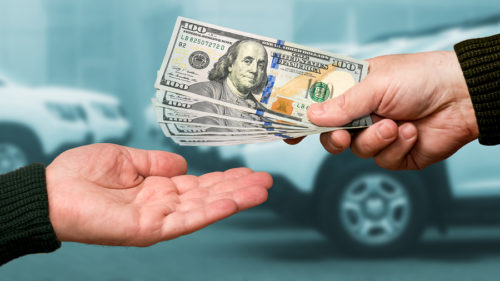5 Times You Can Sue After a Georgia Car Accident (And 3 Times You Can’t)

Not every car accident ends with a lawsuit, but sometimes legal action is the only way to get the compensation you deserve. Georgia’s personal injury laws allow crash victims to sue in specific circumstances—but also limit your options in others.
Here are 5 times when you CAN sue after a Georgia car accident, and 3 times when you probably CAN’T (at least, not successfully).

✅ 5 Times You Can Sue After a Car Accident in Georgia
1. The Other Driver Was Clearly at Fault
If the other driver ran a red light, was speeding, or was otherwise obviously negligent, you have the right to sue for:
- Medical expenses
- Lost wages
- Pain and suffering
- Property damage
In Georgia, the at-fault party is financially responsible for all losses resulting from the crash.
2. You Suffered Serious Injuries
If the accident caused severe injuries (broken bones, surgery, long-term disability, etc.), a lawsuit may be necessary to recover the full value of your claim. Insurance companies often undervalue serious injuries, especially those with long-term costs.
3. The At-Fault Driver Has No Insurance (or Not Enough)
If the other driver is uninsured or underinsured, you can:
- Sue them personally for damages
- Use your UM/UIM coverage to recover costs
A lawsuit may be your best shot at financial recovery when insurance falls short.
4. You Were Hit by a Commercial Vehicle or Rideshare Driver
Accidents involving trucking companies, delivery vehicles, or rideshare drivers (Uber, Lyft) often involve larger policies and more complex liability chains. A lawsuit can help hold all responsible parties accountable—including the company, not just the driver.
5. You Were Offered an Unfair Settlement
If the insurance company lowballs your settlement or refuses to negotiate, you have the right to take your case to court. A lawsuit can force the insurer to take your claim seriously and offer what your case is truly worth.

🚫 3 Times You (Probably) CAN’T Sue After a Georgia Car Accident
1. You Were Mostly At Fault (50% or More)
Georgia follows a modified comparative fault rule:
- If you are 50% or more at fault, you cannot recover damages.
- If you are less than 50% at fault, your compensation will be reduced by your percentage of fault.
2. Your Injuries Are Minor and Already Covered
If your medical bills were minimal and already paid by:
- MedPay
- Health insurance
- The at-fault driver’s insurance
… then there may be no financial need to sue. Lawsuits are best reserved for situations where coverage is denied or insufficient.
3. You Waited Too Long to File
In Georgia, the statute of limitations for personal injury from a car accident is 2 years. If you file after that, your case will likely be dismissed.
Tip: The sooner you talk to a lawyer, the better. Evidence fades fast.
Should You Talk to a Lawyer First?
Absolutely. Even if you’re not sure whether you have a case, a consultation can help you:
- Understand your legal rights
- Evaluate potential compensation
- Avoid mistakes that weaken your claim
Most personal injury lawyers (like us) offer free consultations and work on a contingency fee, meaning you don’t pay unless you win.

Final Thoughts
Knowing when you can and can’t sue after a car accident in Georgia gives you a big advantage. If the wreck wasn’t your fault and you’re dealing with injuries or financial losses, don’t assume the insurance company will do the right thing. Take control of your case.
Need Legal Help?
If you’re unsure whether to sue, Car Wreck Cowboys can help you make the right decision. Contact us today for a free consultation and let us fight for the justice and compensation you deserve.






